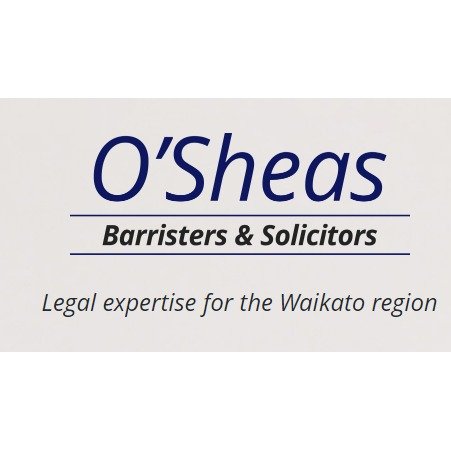Best Native People Lawyers in Hamilton
Share your needs with us, get contacted by law firms.
Free. Takes 2 min.
List of the best lawyers in Hamilton, New Zealand
About Native People Law in Hamilton, New Zealand:
The Native People in Hamilton, New Zealand mainly consist of the Maori community. The Maori have a special status which is protected by the Treaty of Waitangi signed in 1840 between Maori chiefs and the British Crown. This treaty guarantees the rights of the Maori people with respect to their lands, resources and other properties. The Native People Law in New Zealand, therefore, largely revolves around the principles of this Treaty and discusses issues such as land rights, water rights, protection of cultural heritage and more.
Why You May Need a Lawyer:
Individuals may need legal advice or representation regarding Native People law for various reasons. These can range from disputes over land and resource rights, cultural heritage protection, to regulatory compliance issues and governmental relations. Lawyers specialized in Native People law can provide guidance through the complexities of the Treaty of Waitangi and help address claims before the Waitangi Tribunal, in addition to facilitating negotiations between the Maori and government or commercial bodies.
Local Laws Overview:
The key aspect of local laws particularly relevant to Native People in Hamilton, involves Treaty of Waitangi and the Waitangi Tribunal. The Tribunal helps to resolve disputes relating to the Treaty's principles, making rulings on land, rights of ancestral places and redress for breaches. Issues regarding fisheries and forests, Maori language and customs, protecting artwork, knowledge, and beliefs also fall under local laws.
Frequently Asked Questions:
What rights do the Native People have?
As per the Treaty of Waitangi, the Maori have rights to control and manage their lands, homes and other properties, alongside full protection for all their rights.
What is the Waitangi Tribunal?
The Waitangi Tribunal is a New Zealand permanent commission of inquiry that makes recommendations on claims brought by Maori relating to actions or omissions of the Crown that breach the promises made in the Treaty of Waitangi.
What role does a lawyer play in Native People Law?
A lawyer helps to navigate through the complex treaty rights, assists in claims before the Tribunal, facilitates negotiations, and aids in protecting the cultural heritage of the community.
What is the importance of Native People Law?
Native People Law in New Zealand helps to preserve Maori culture, assists in managing their resources, settles disputes and ensures regulatory compliance.
Can individuals other than Native People practice Native People Law?
Yes, anyone with a legal background can study and specialize in Native People Law and represent Native People or other parties in disputes involving the Treaty of Waitangi.
Additional Resources:
Governmental bodies like Te Puni Kōkiri (Ministry of Maori Development) and the Waitangi Tribunal can be helpful resources. Non-governmental Maori organizations, like the Maori Law Society, can also provide assistance for legal advice.
Next Steps:
If you require legal assistance regarding Native People Law, it's recommended to find a lawyer who specializes in this field. You may want to gather all relevant information related to your case, such as documents and a chronology of events. Contacting the New Zealand Law Society can be a good start to find the right legal representation.
Lawzana helps you find the best lawyers and law firms in Hamilton through a curated and pre-screened list of qualified legal professionals. Our platform offers rankings and detailed profiles of attorneys and law firms, allowing you to compare based on practice areas, including Native People, experience, and client feedback.
Each profile includes a description of the firm's areas of practice, client reviews, team members and partners, year of establishment, spoken languages, office locations, contact information, social media presence, and any published articles or resources. Most firms on our platform speak English and are experienced in both local and international legal matters.
Get a quote from top-rated law firms in Hamilton, New Zealand — quickly, securely, and without unnecessary hassle.
Disclaimer:
The information provided on this page is for general informational purposes only and does not constitute legal advice. While we strive to ensure the accuracy and relevance of the content, legal information may change over time, and interpretations of the law can vary. You should always consult with a qualified legal professional for advice specific to your situation.
We disclaim all liability for actions taken or not taken based on the content of this page. If you believe any information is incorrect or outdated, please contact us, and we will review and update it where appropriate.








